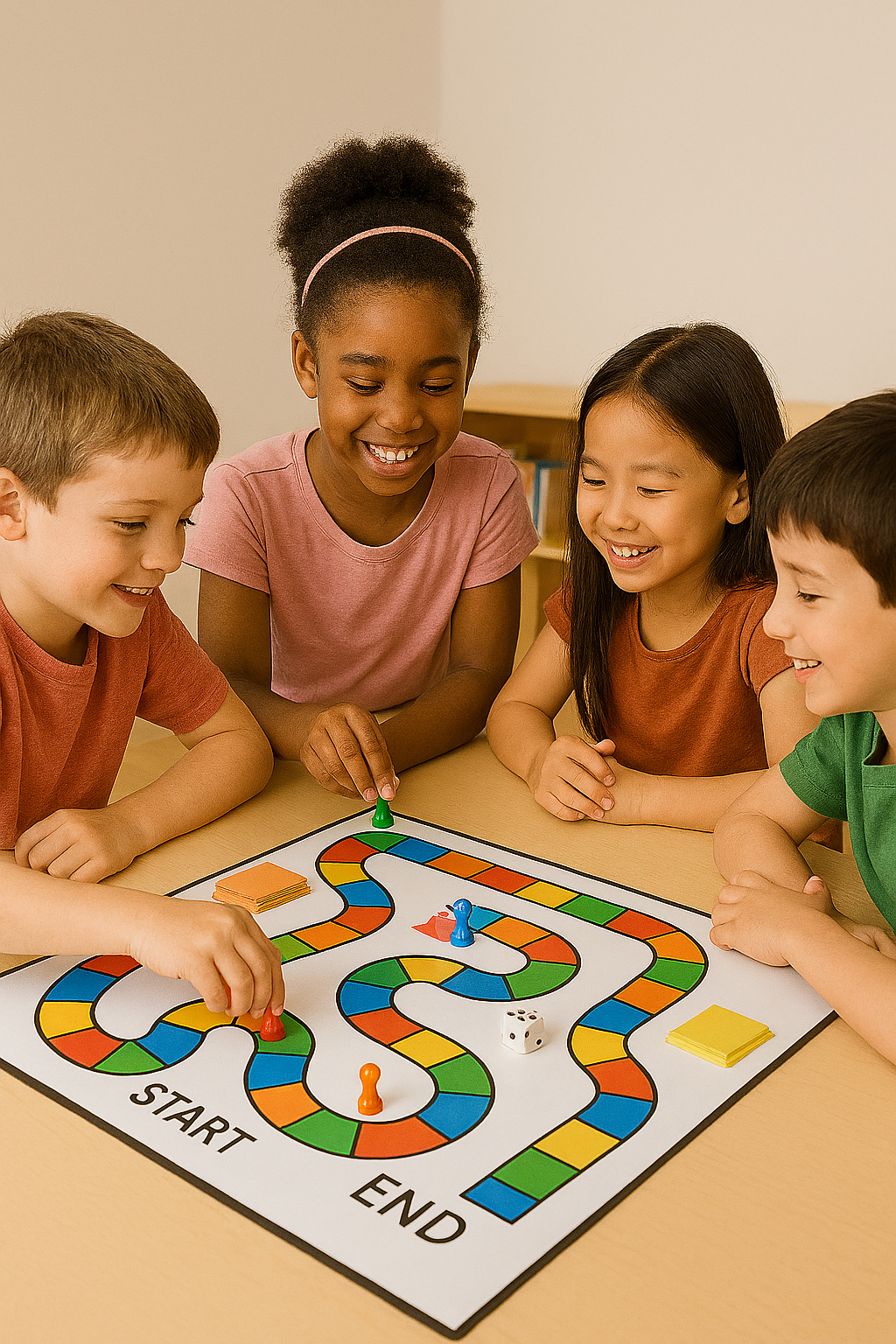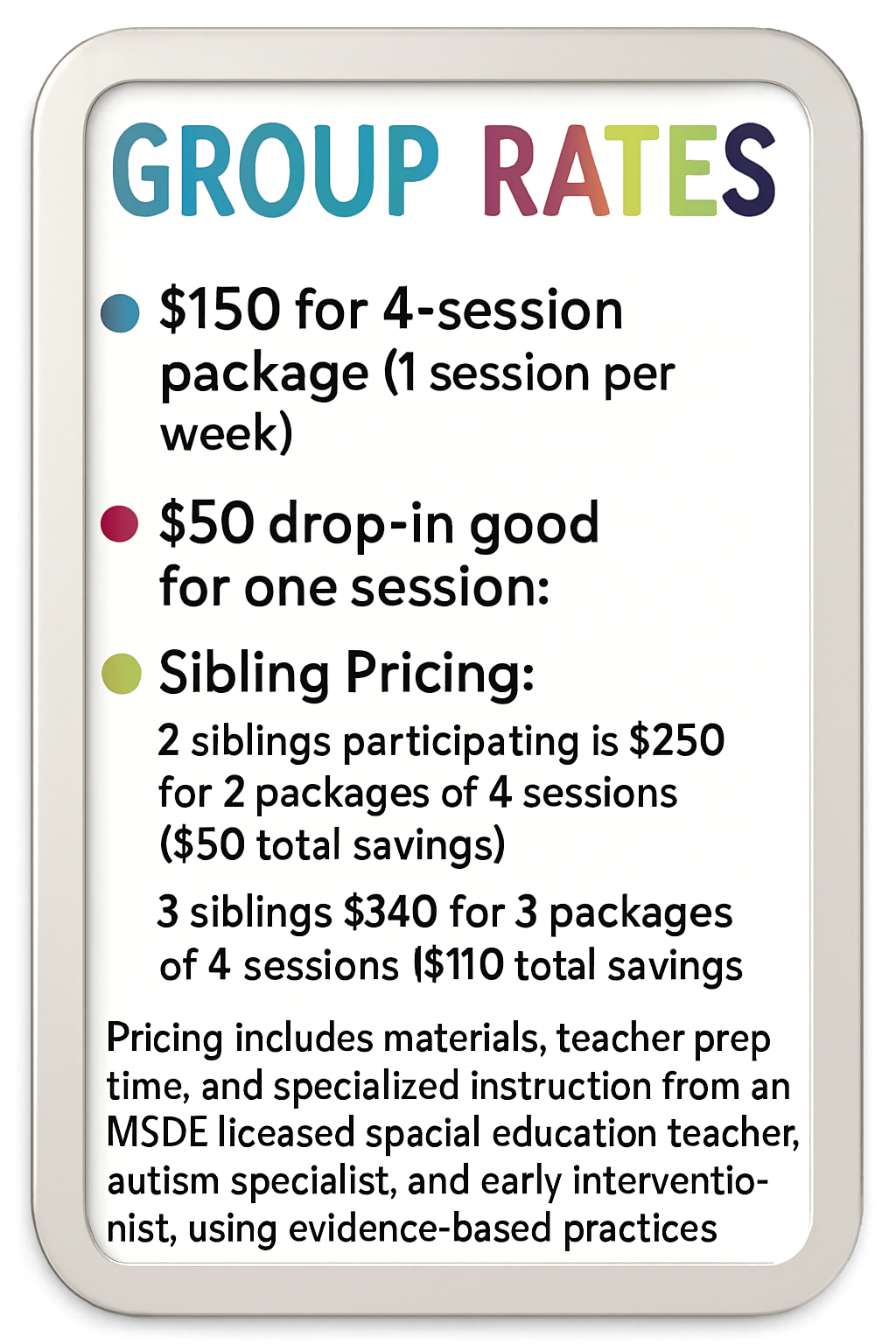 Image 1 of 4
Image 1 of 4

 Image 2 of 4
Image 2 of 4

 Image 3 of 4
Image 3 of 4

 Image 4 of 4
Image 4 of 4





STM-STC SCHOOL Group services
⚠️ Important Notice:
Social clubs begin 10/2/25!
***You may request an invoice, instead of completing your own check out. Please contact us.
We are happy to help!
Thursdays at 3:00 p.m. and a 2nd time at 4:15 p.m.
*Please contact Ms. Julie with any additional questions!
~~~~~
🎓 Our Social Clubs are designed to help children:
Make new friends through playful, inclusive activities
Strengthen social communication and emotional awareness
Build executive functioning skills like planning, flexibility, and self-regulation
Practice teamwork, problem-solving, and confidence-building
🌟 Program Goal
Today, many children face challenges with social interaction and executive functioning—skills that are essential for success in school, relationships, and everyday life. Our program is thoughtfully designed to support both areas, helping learners build confidence, independence, and meaningful connections.
Through engaging activities and personalized strategies, we nurture growth in:
• Social communication and peer interaction
• Emotional regulation and self-awareness
• Planning, organization, and task completion
• Focus, flexibility, and problem-solving
🧠 Core Executive Functioning Skills
Working Memory
Holding and manipulating information in your mind over short periods.Inhibitory Control (Impulse Control)
Thinking before acting; resisting temptations or distractions.Cognitive Flexibility
Shifting attention between tasks or adapting to new situations and perspectives.
🗂️ Organizational & Planning Skills
Planning
Setting goals and outlining steps to achieve them.Organization
Creating and maintaining systems to keep track of materials, tasks, and information.Time Management
Estimating how long tasks will take and allocating time effectively.Prioritization
Identifying what tasks are most important and sequencing them appropriately.
🚀 Task Execution & Self-Regulation
Task Initiation
Starting tasks promptly without procrastination.Sustained Attention
Maintaining focus over time, especially on complex or non-preferred tasks.Goal-Directed Persistence
Following through on goals despite challenges or distractions.Self-Monitoring
Evaluating your own performance and adjusting strategies as needed.Emotional Regulation
Managing emotions to stay productive and respond appropriately to situations.Metacognition
Thinking about your own thinking—reflecting on how you learn and solve problems.
These skills often work together and develop over time, especially during childhood and adolescence. They’re essential for academic success, social interactions, and independent living.
⚠️ Important Notice:
Social clubs begin 10/2/25!
***You may request an invoice, instead of completing your own check out. Please contact us.
We are happy to help!
Thursdays at 3:00 p.m. and a 2nd time at 4:15 p.m.
*Please contact Ms. Julie with any additional questions!
~~~~~
🎓 Our Social Clubs are designed to help children:
Make new friends through playful, inclusive activities
Strengthen social communication and emotional awareness
Build executive functioning skills like planning, flexibility, and self-regulation
Practice teamwork, problem-solving, and confidence-building
🌟 Program Goal
Today, many children face challenges with social interaction and executive functioning—skills that are essential for success in school, relationships, and everyday life. Our program is thoughtfully designed to support both areas, helping learners build confidence, independence, and meaningful connections.
Through engaging activities and personalized strategies, we nurture growth in:
• Social communication and peer interaction
• Emotional regulation and self-awareness
• Planning, organization, and task completion
• Focus, flexibility, and problem-solving
🧠 Core Executive Functioning Skills
Working Memory
Holding and manipulating information in your mind over short periods.Inhibitory Control (Impulse Control)
Thinking before acting; resisting temptations or distractions.Cognitive Flexibility
Shifting attention between tasks or adapting to new situations and perspectives.
🗂️ Organizational & Planning Skills
Planning
Setting goals and outlining steps to achieve them.Organization
Creating and maintaining systems to keep track of materials, tasks, and information.Time Management
Estimating how long tasks will take and allocating time effectively.Prioritization
Identifying what tasks are most important and sequencing them appropriately.
🚀 Task Execution & Self-Regulation
Task Initiation
Starting tasks promptly without procrastination.Sustained Attention
Maintaining focus over time, especially on complex or non-preferred tasks.Goal-Directed Persistence
Following through on goals despite challenges or distractions.Self-Monitoring
Evaluating your own performance and adjusting strategies as needed.Emotional Regulation
Managing emotions to stay productive and respond appropriately to situations.Metacognition
Thinking about your own thinking—reflecting on how you learn and solve problems.
These skills often work together and develop over time, especially during childhood and adolescence. They’re essential for academic success, social interactions, and independent living.